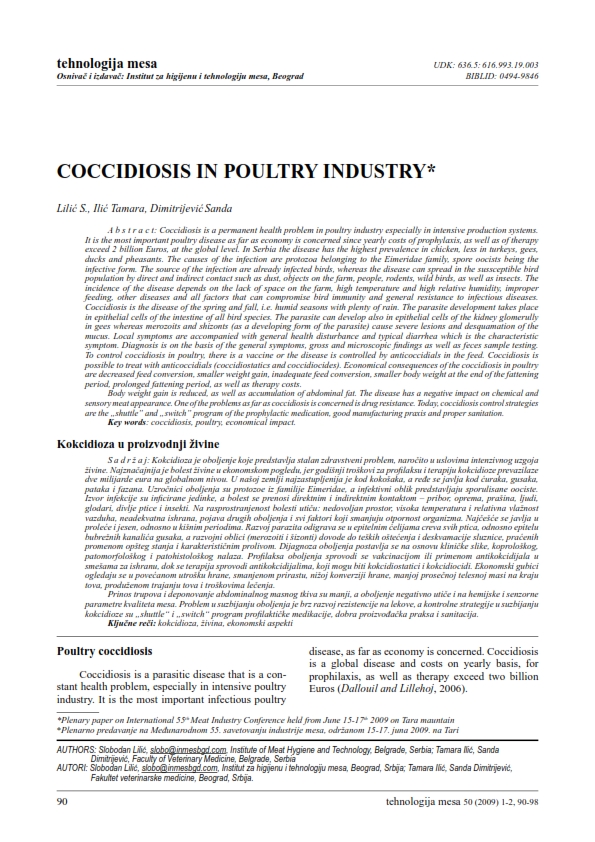COCCIDIOSIS IN POULTRY INDUSTRY
Abstract
Coccidiosis is a permanent health problem in poultry industry especially in intensive production systems. It is the most important poultry disease as far as economy is concerned since yearly costs of prophylaxis, as well as of therapy exceed 2 billion Euros, at the global level. In Serbia the disease has the highest prevalence in chicken, less in turkeys, gees, ducks and pheasants. The causes of the infection are protozoa belonging to the Eimeridae family, spore oocists being the infective form. The source of the infection are already infected birds, whereas the disease can spread in the sussceptible bird
population by direct and indirect contact such as dust, objects on the farm, people, rodents, wild birds, as well as insects. The incidence of the disease depends on the lack of space on the farm, high temperature and high relative humidity, improper feeding, other diseases and all factors that can compromise bird immunity and general resistance to infectious diseases. Coccidiosis is the disease of the spring and fall, i.e. humid seasons with plenty of rain. The parasite development takes place in epithelial cells of the intestine of all bird species. The parasite can develop also in epithelial cells of the kidney glomerully in gees whereas merozoits and shizonts (as a developing form of the parasite) cause severe lesions and desquamation of the mucus. Local symptoms are accompanied with general health disturbance and typical diarrhea which is the characteristic symptom. Diagnosis is on the basis of the general symptoms, gross and microscopic fi ndings as well as feces sample testing. To control coccidiosis in poultry, there is a vaccine or the disease is controlled by anticoccidials in the feed. Coccidiosis is possible to treat with anticoccidials (coccidiostatics and coccidiocides). Economical consequences of the coccidiosis in poultry are decreased feed conversion, smaller weight gain, inadequate feed conversion, smaller body weight at the end of the fattening period, prolonged fattening period, as well as therapy costs. Body weight gain is reduced, as well as accumulation of abdominal fat. The disease has a negative impact on chemical and sensory meat appearance. One of the problems as far as coccidiosis is concerned is drug resistance. Today, coccidiosis con trol strategies are the „shuttle” and „switch” program of the prophylactic medication, good manufacturing praxis and proper sanitation.





